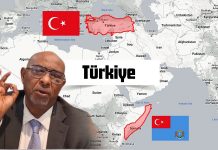Somaliland, a self-declared independent state in the Horn of Africa, faces various challenges in establishing a stable and prosperous economy, with one of its main potential sources of revenue being its significant oil reserves, the exploration and extraction of these reserves also pose significant challenges and risks, including exacerbating political instability and conflict, environmental degradation, and the potential for corruption and exploitation by foreign companies.
Recently, Somaliland has faced a new challenge in the form of conflict and violence in the Sool region, particularly in the town of Laasaanod. The conflict is rooted in a territorial dispute between Somaliland and the neighboring Puntland region, which claims control over the area the conflict has escalated in recent weeks, with reports of clashes between Somaliland and Puntland forces, armed group attacks, and incidents of civilian casualties.
The conflict in Laasaanod has highlighted the underlying tensions and political divisions in Somaliland, as well as the challenges of establishing a stable and inclusive political system in a region where clan affiliations and territorial disputes are deeply entrenched.
The secondary causes of conflict are the concerns about oil exploration and extraction in the region, particularly in areas where there are already disputes over resource control.
Resource conflicts in Warsangeli and Nugaal Valley in the Sool region, respectively have merged with existing grievances over marginalization, and oil exploration and extraction have become sources of contention, with various companies acquiring rights to explore and extract oil in the contested borderlands. These actions are likely to increase tensions between Somaliland and Puntland which can lead to more conflict and instability in the area.
Tensions and conflict between Somaliland and Puntland are primarily over the future of Somalia as a united or divided state, while the role of natural resources are being secondary.
The potential negative consequences of oil exploration and extraction in Somaliland vary significantly. One of the main concerns is the exacerbation of political instability and conflict, particularly in areas where there are disputes over resource control. Environmental degradation caused by oil exploration and extraction is another significant concern, with the potential to have long-lasting and far-reaching impacts on the region’s fragile ecosystems and water resources. Finally, there is the risk of corruption and exploitation of resources by foreign companies, leading to inequitable distribution of benefits and revenue and exacerbating social and economic inequality in the region.
The US-China geopolitical competition has also added to the complexity of the situation, with China making significant investments in Africa and showing interest in Somaliland’s oil reserves. This has raised concerns among some analysts that the US, which also has strategic interests in the region, may be drawn into geopolitical competition with China in Somaliland.
To address these challenges, Somaliland needs to develop a clear legal and regulatory framework for resource extraction that promotes transparency, accountability, and equitable distribution of benefits. It will also need to address the underlying political divisions and tensions fueling conflict and instability in the region and promote inclusive and sustainable economic development that benefits all citizens. And also the international community must also recognize the complexities of the situation and work to support Somaliland’s efforts to address these challenges in a way that promotes peace, stability, and prosperity for all
Gulaid Yusuf Idaan
Idaan54@gmail.com
@Guiled2
Senior lecturer and Youth Activist in the Horn of Africa for the mobilization and empowerment of Young people in the Horn of Africa






















